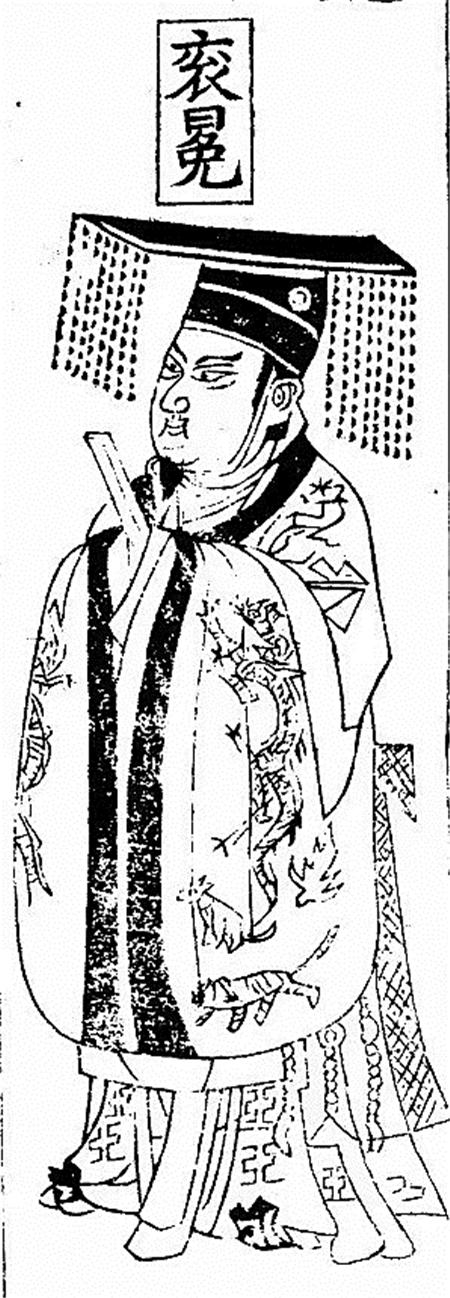

Zhao pointed out that the concept of civilization in ancient Chinese society, which combined etiquette and law, played a very important role as weapon of rule, displaying the righteousness and thus bolstering the legitimacy of elites. He claimed that despite intense political struggle, all changes in mianfu during the Ming Dynasty were essentially developed from the etiquette system.
Peng mentioned in his report that in ancient times, apart from war, the sacrificial ceremony was the greatest event in imperial politics. And of all the sacrificial ceremonies, the emperor himself worshiping nature was the most important event.
However, from the Qin Dynasty (221-206 BC) to the beginning of the Song Dynasty (960-1279), there was no certain rule for the dress of the emperor at these ceremonies.
Peng pointed out that the duty of an emperor was to set an example for his people, and that these standards were revealed through his behaviors, decisions, and dress, which should be appropriately formal but not overly luxurious.
As for why during the Song Dynasty standards for ceremonial dress were codified, he referred to the explanations given by Song Dynasty Confucian scholars themselves, who said that the formalization of mianfu served to curb the indulgence and extravagance of the upper classes and gradually establish what they considered was a more acceptable paradigm for political culture.
In addition, five other scholars in the morning session delivered speeches explaining the connection between ancient Chinese literature and costume and modern design, diplomatic protocol and etiquette.
Li Mei, an associate professor from the Advanced Institute for Confucian Studies, Shandong University, introduced her analysis of dress etiquette from the perspective of Confucianism; Chen Qiyang, an associate professor from Huanggang Normal University, talked about the relationship between mythical creatures and clothing and headwear in the Zhou Dynasty (c. 11th century-256 BC); Zhou Jiali, an associate professor at China Foreign Affairs University, delivered a lecture on the influence of Chinese traditional dress culture on modern Chinese diplomatic dress; Zhang Yi, a researcher from the Beijing Institute of Economics and Management, delivered a talk on how changing clothing culture encapsulated the development of Chinese civilization; and He Yang, a professor from the Ethnic Costume Museum at the Beijing Institute of Fashion Technology, explored the connections between traditional design and the Beijing 2022 Winter Olympics uniforms.
In two afternoon sessions, 28 speakers engaged in a discussion on the relationship between Confucian ideology and costumes in different dynasties, with eight reviewers providing academic commentary.
According to Jia Ronglin, head of the Beijing Institute of Fashion Technology, the academic symposium not only described ancient fashion from the perspective of Confucianism, but also showed the influence of clothing on ancient philosophy.
The research results presented integrated, multidimensional perspectives using comprehensive methods involving Chinese history, philosophy, archaeology, design and other disciplines, he says.
"The value of this symposium is not only limited to the objective discussion of history and culture, but also a bright practical guiding significance for the development of contemporary Chinese society," says Jia.